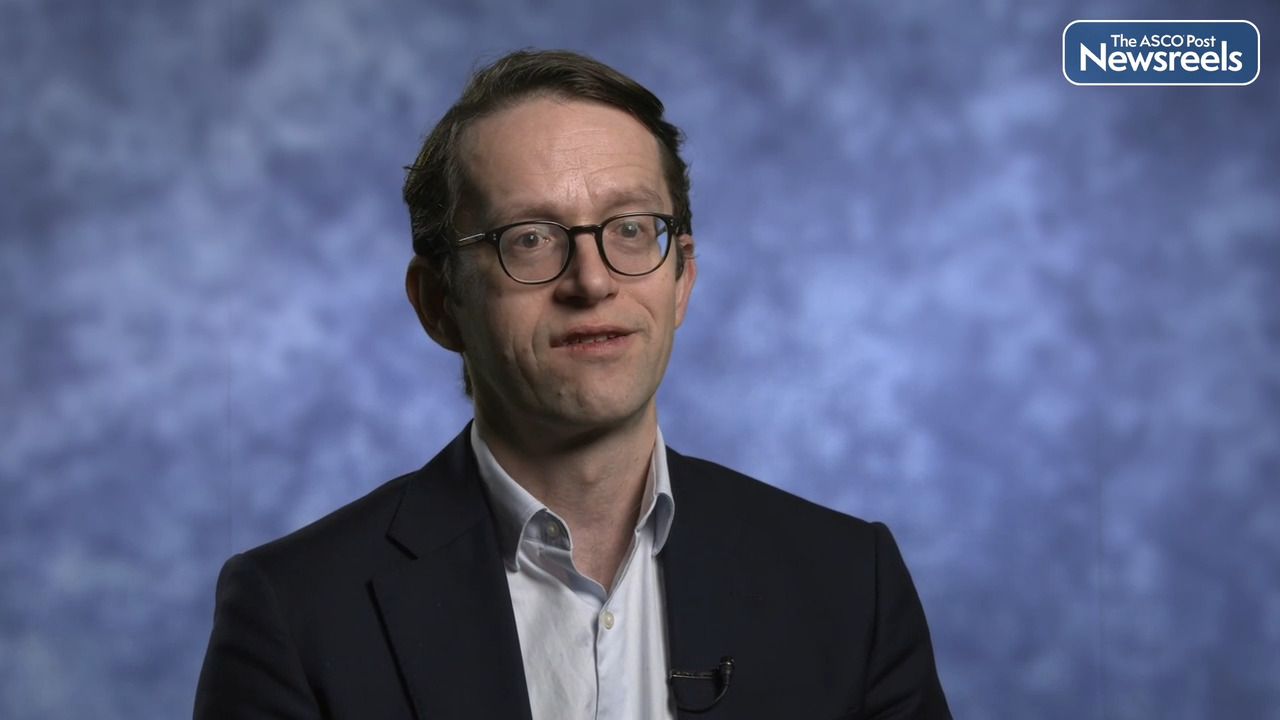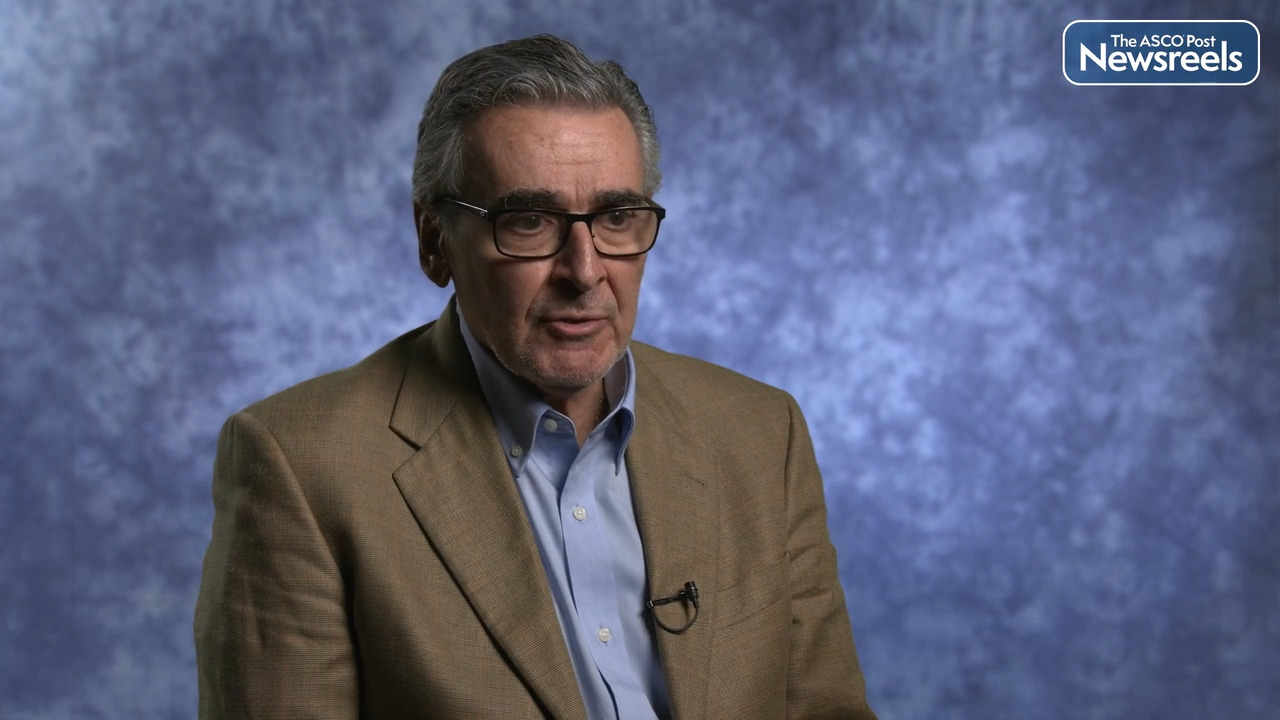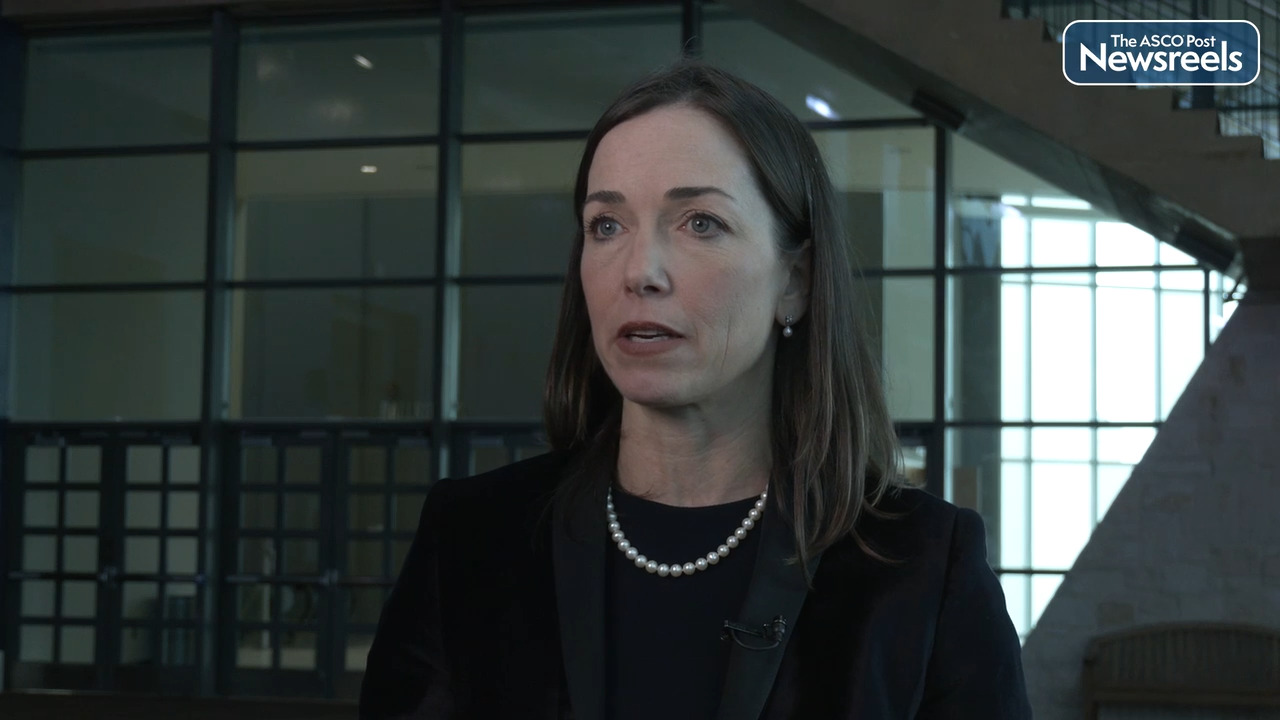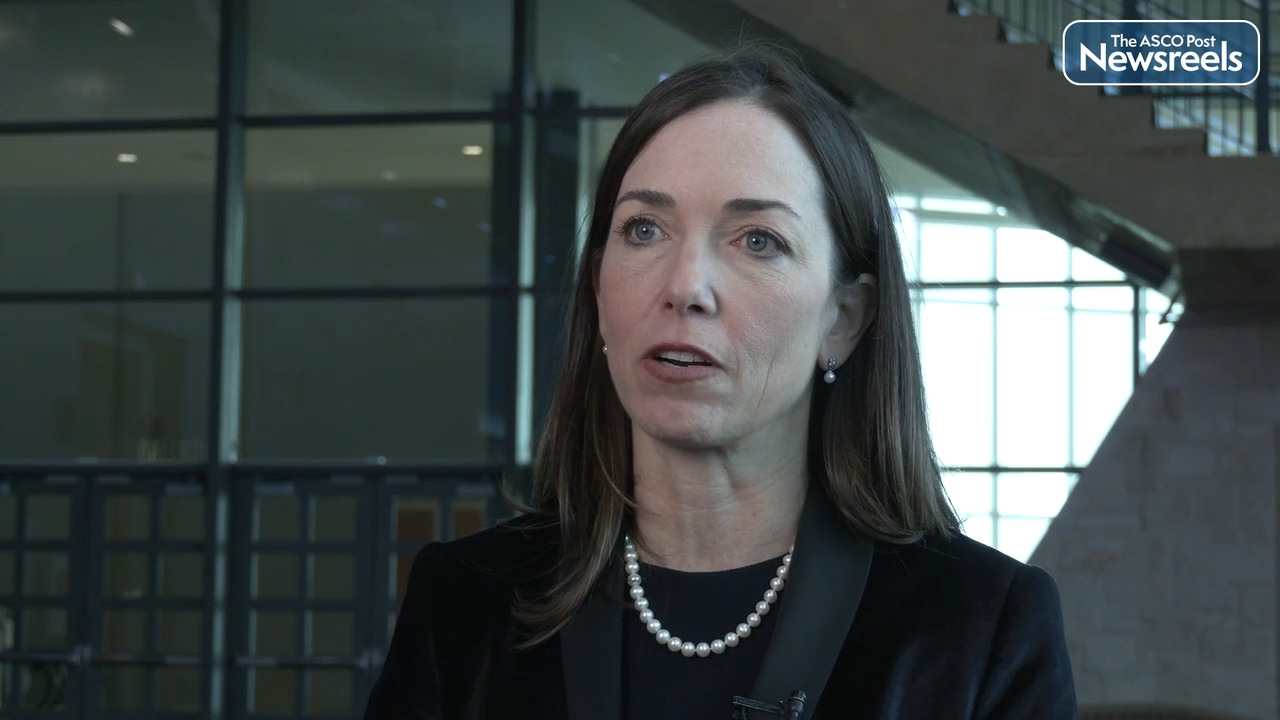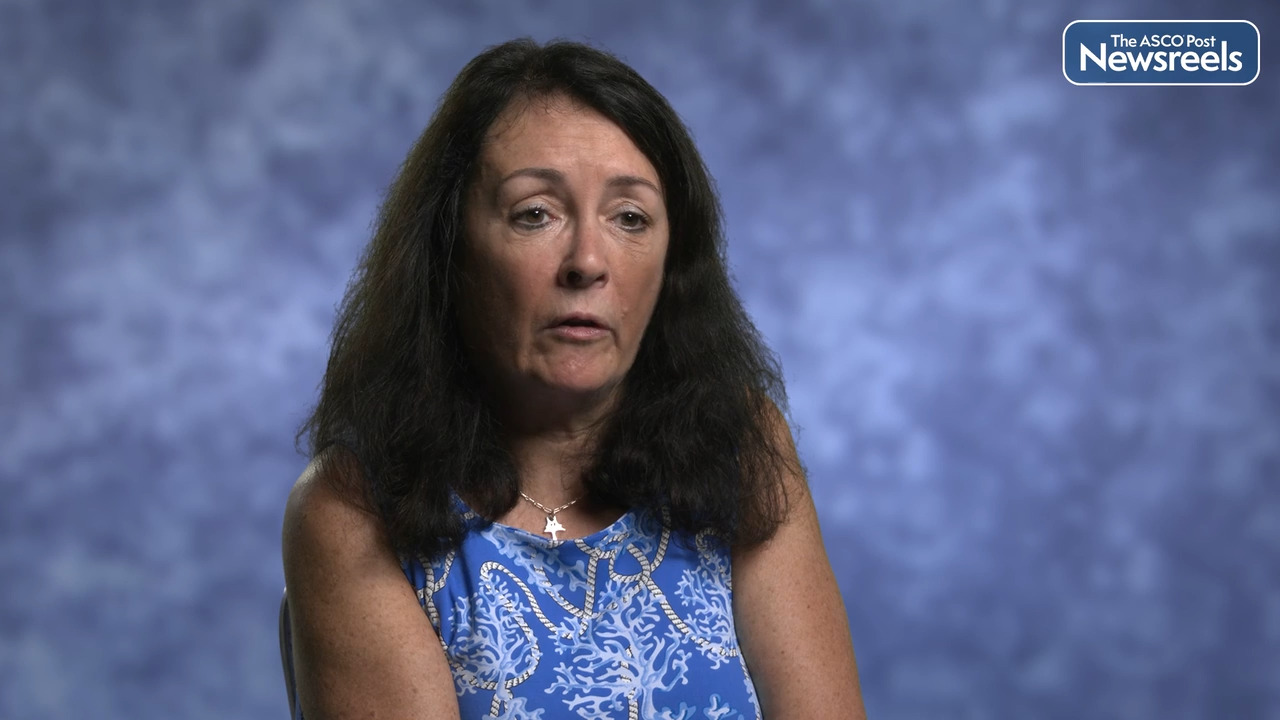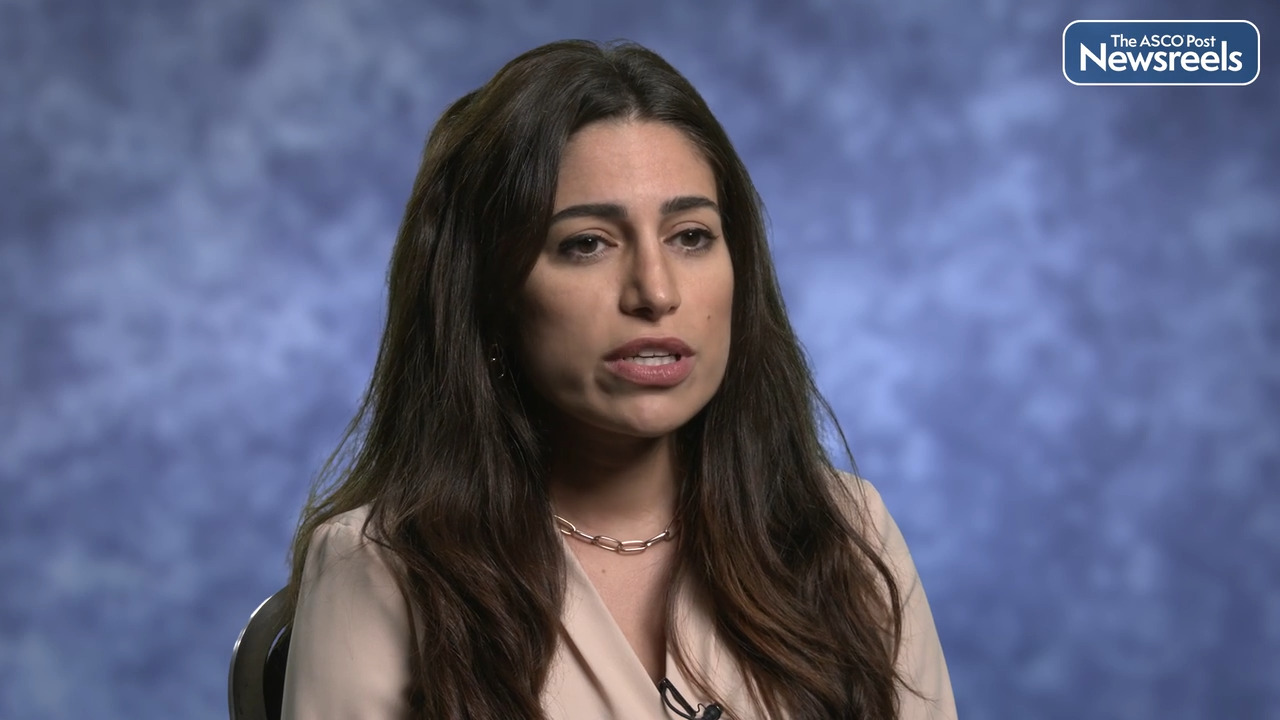2022 San Antonio Breast Cancer Symposium
Nicholas C. Turner, MD, PhD, on New Data on Capivasertib and Fulvestrant for Advanced Breast Cancer
Nicholas C. Turner, MD, PhD, of London’s Institute of Cancer Research and The Royal Marsden, discusses phase III results from the CAPItello-291 clinical trial, which showed that in patients with hormo...
Joseph A. Sparano, MD, on Long-Term Breast Cancer Recurrence and Survival Data from TAILORx
Joseph A. Sparano, MD, of the Tisch Cancer Center at Mount Sinai Health System, discusses long-term clinical outcomes data that continue to show many women with early breast cancer can safely forgo ch...
Circulating Tumor Cell Count–Driven Treatment Decisions May Improve Long-Term Outcomes for Patients With Metastatic Breast Cancer
The use of circulating tumor cell counts to guide the choice between chemotherapy and endocrine therapy as first-line treatment for patients with metastatic, estrogen receptor–positive, HER2-negative ...
Camizestrant May Be Superior to Fulvestrant in Patients With Hormone Receptor–Positive, HER2-Negative Breast Cancer
The next-generation selective estrogen receptor degrader (SERD) camizestrant improved progression-free survival compared to fulvestrant in patients with hormone receptor–positive, HER2-negative breast...
Patients With Breast Cancer Who Interrupted Endocrine Therapy to Pursue Pregnancy Did Not Experience Worse Short-Term Recurrence Rates
Patients with breast cancer who paused their endocrine therapy while attempting to conceive experienced short-term rates of breast cancer recurrence similar to patients with breast cancer who did not ...
Adding Capivasertib to Fulvestrant May Improve Progression-Free Survival in Patients With Advanced Hormone Receptor–Positive Breast Cancer
In patients with hormone receptor–positive, HER2-negative breast cancer who are resistant to aromatase inhibitors, the addition of the investigational AKT inhibitor capivasertib to fulvestrant doubled...
Sara A. Hurvitz, MD: New Findings on Neoadjuvant Trastuzumab Deruxtecan and Anastrozole in Early-Stage Breast Cancer
Sara A. Hurvitz, MD, of the University of California, Los Angeles, Jonsson Comprehensive Cancer Center, discusses phase II results from the TRIO-US B-12 TALENT study, which showed that patients with l...
Sara A. Hurvitz, MD, on Updated Survival Results on T-DXd vs T-DM1 in Metastatic Breast Cancer
Sara A. Hurvitz, MD, of the University of California, Los Angeles, Jonsson Comprehensive Cancer Center, discusses phase III findings from the DESTINY-Breast03 study, which showed that second-line trea...
Ruth O’Regan, MD, on Evaluation of the Breast Cancer Index in Early-Stage Breast Cancer
Ruth O’Regan, MD, of the University of Rochester Medical Center, discusses the Breast Cancer Index (BCI), a genomic assay that can assess the risk of late distant recurrence (5–10 years after diagnosi...
Yara Abdou, MD, on Race and Clinical Outcomes in the RxPONDER Breast Cancer Trial
Yara Abdou, MD, of the University of North Carolina, discusses results from the RxPONDER SWOG S1007 study, which showed that non-Hispanic Black women with hormone receptor–positive/HER2-negative breas...
T-DXd Yields Superior Outcomes Over Chemotherapy-Based Regimens in Patients Previously Treated With T-DM1: DESTINY-Breast02
Compared with capecitabine-based regimens, fam-trastuzumab deruxtecan-nxki (T-DXd) led to higher response rates and longer survival in the third-line setting for patients with HER2-positive metastatic...
T-DXd Yields Longer Overall Survival than T-DM1 as Second-Line Treatment in Patients With HER2-Positive Metastatic Breast Cancer: DESTINY-Breast03
Second-line treatment with fam-trastuzumab deruxtecan-nxki (T-DXd) led to significantly longer overall survival compared with ado-trastuzumab emtansine (T-DM1) in patients with HER2-positive metastati...
Neoadjuvant T-DXd Shows Clinical Activity in Patients With HER2-Low Breast Cancer
Patients with localized, hormone receptor (HR)-positive, HER2-low breast cancer treated with fam-trastuzumab deruxtecan-nxki (T-DXd) in the neoadjuvant setting had an overall response rate of 75% with...
First-Line Ribociclib Plus Endocrine Therapy May Be More Effective Than Combination Chemotherapy in Patients With Aggressive Breast Cancer
In patients with hormone receptor–positive, HER2-negative advanced breast cancer—including patients with visceral crises—those treated with ribociclib plus endocrine therapy had fewer adverse events a...
Study Finds Racial Disparity in Prometastatic Tumor Microenvironment Among Patients With Residual Breast Cancer After Neoadjuvant Chemotherapy
Residual tumors from Black patients with estrogen receptor–positive/HER2-negative primary breast cancer treated with neoadjuvant chemotherapy had a higher risk score associated with a biomarker of dis...
Genomic Assay May Predict Long-Term Prognosis in Premenopausal Patients With Hormone Receptor–Positive Early-Stage Breast Cancer
Among premenopausal patients with hormone receptor–positive, early-stage breast cancer enrolled in the SOFT trial, those with a high score on the Breast Cancer Index genomic assay had an increased ris...
Black Patients With Breast Cancer May Have Worse Outcomes Than Other Patients Despite Similar Genetic Recurrence Scores
Non-Hispanic Black patients with lymph node–positive, hormone receptor (HR)–positive/HER2-negative breast cancer experienced worse outcomes compared with the outcomes of non-Hispanic White, Asian, and...
